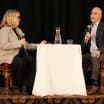The Buffalo Sabres are proud to recognize and celebrate Juneteenth. Scroll below for the history of the holiday, educational resources, and information on local organizations in Western New York.
History of Juneteenth
On January 1, 1863, President Abraham Lincoln issued the Emancipation Proclamation to declare "that all persons held as slaves" within rebellious Confederate states "are, and henceforward shall be free."
It took two and a half years for that freedom to extend to the westernmost reaches of the Confederacy. On June 19, 1865, Union troops arrived in Galveston Bay, Texas to declare freedom to the enslaved people in the state. As told by the National Museum of African American History & Culture, “more than 250,000 African Americans embraced freedom by executive decree in what became known as Juneteenth or Freedom Day. With the principles of self-determination, citizenship, and democracy magnifying their hopes and dreams, those Texans held fast to the promise of true liberty for all.”
Juneteenth was made a federal holiday on June 17, 2021.
About the National Museum of African American History & Culture
The National Museum of African American History and Culture “is the only national museum devoted exclusively to the documentation of African American life, history, and culture. It was established by an Act of Congress in 2003, following decades of efforts to promote and highlight the contributions of African Americans. To date, the Museum has collected more than 40,000 artifacts and nearly 100,000 individuals have become members. The Museum opened to the public on September 24, 2016, as the 19th museum of the Smithsonian Institution.”
Below are links to some of the museum’s educational resources on Juneteenth:
Local Resources
Buffalo Juneteenth
- About: “The Juneteenth Festival of Buffalo was started in 1976 by B.U.I.L.D., a community-based organization, as a culturally relevant alternative to the country's Bicentennial Celebration.”
- Their mission: “To actively preserve and promote the broad spectrum of African American Heritage through educational and cultural activities that will benefit the community as a whole. Juneteenth Festival, Inc. partners with existing organizations with similar community-based objectives to help achieve our mission.”
- Community events and more information: https://www.buffalojuneteenth.com/
African American Heritage Corridor
- Mission statement: “As an advocate for the community, the Michigan Street African American Heritage Corridor Commission endeavors to integrate the African American cultural significance and impact on Buffalo’s history through public engagement, community education that will invigorate, inspire and enliven cultural appreciation, preservation and community development. “
- Learn more: https://www.michiganstreetbuffalo.org/
Niagara Falls Underground Railroad Heritage Center
- About: “The Heritage Center preserves the historic role of the people of Niagara Falls in facilitating freedom for the oppressed. The places and stories associated with this network of freedom seekers, free African Americans, and abolitionists evoke powerful themes in American history and celebrate the bravery of the men and women who risked their own lives to achieve the most basic rights of liberty.”
- Mission statement: “To reveal authentic stories of Underground Railroad freedom seekers and abolitionists in Niagara Falls that inspire visitors to recognize modern injustices that stem from slavery and take action toward an equitable society.”
- Learn more: https://www.niagarafallsundergroundrailroad.org/
Nash House Museum
- About: “The Michigan Street Preservation Corporation (MSPC) is helping to spearhead efforts to redevelop and restore the historic neighborhood around the Nash House, which includes the Michigan Street Baptist Church (built in 1845), the site of the former Little Harlem Supper Club, the Colored Musicians Club, and the numerous dwellings that made up the once thriving community. Through the generosity of the City of Buffalo, the County of Erie, the State of New York and a number of other benefactors, the Nash House was restored and opened as the Nash House Museum in May 2007, providing a snapshot of life in the early 1900’s on Buffalo’s East Side and a glimpse into the life of one of Western New York’s most influential African-American leaders.”
- Learn more: https://www.nashhousemuseum.com/
Local Community Organizations:
Buffalo’s NAACP
- About: “Buffalo, NY played a major role in the formation of the National Association for the Advancement of Colored People. In 1905 a conference to be held in Buffalo was organized by Professor W.E.B. DuBois of Atlanta, Georgia. He made arrangements with William H. & Mary Talbert to have the first day of the meeting on July 11, 1905, at their 521 Michigan Avenue home. Representatives from 18 states and the District of Columbia attended. The July 12thand 13th meetings were held in Fort Erie Ontario, Canada. Plans were made for a permanent organization to be known as the “Niagara Movement”. Professor DuBois prepared the principles of the Niagara Movement.”
- Learn more: https://buffalonaacp.org/
Buffalo Urban League
- Mission statement: “To help African Americans and others in underserved communities achieve their highest true social parity, economic self-reliance, power, and civil rights. The League promotes economic empowerment through education and job training, housing and community development, workforce development, entrepreneurship, health, and quality of life.”
- Learn more: https://www.buffalourbanleague.org/
The Colored Musicians Club & Jazz Museum
- Mission statement: “The Colored Musicians Club and the Colored Musicians Club (Jazz) Museum is dedicated to promoting research and preserving the history of African American music, not only in Buffalo but globally. We aspire to enlighten, encourage, and educate our youth of their musical heritage.”
- Learn more: https://www.thecoloredmusiciansclub.com/
African American Cultural Center
- About: “Since 1958, the African American Cultural Center, Inc. has enabled spirits to soar and offered sanctuary, validation and celebration for the duality of being African and American.”
- Learn more: https://www.aaccbuffalo.org/



















